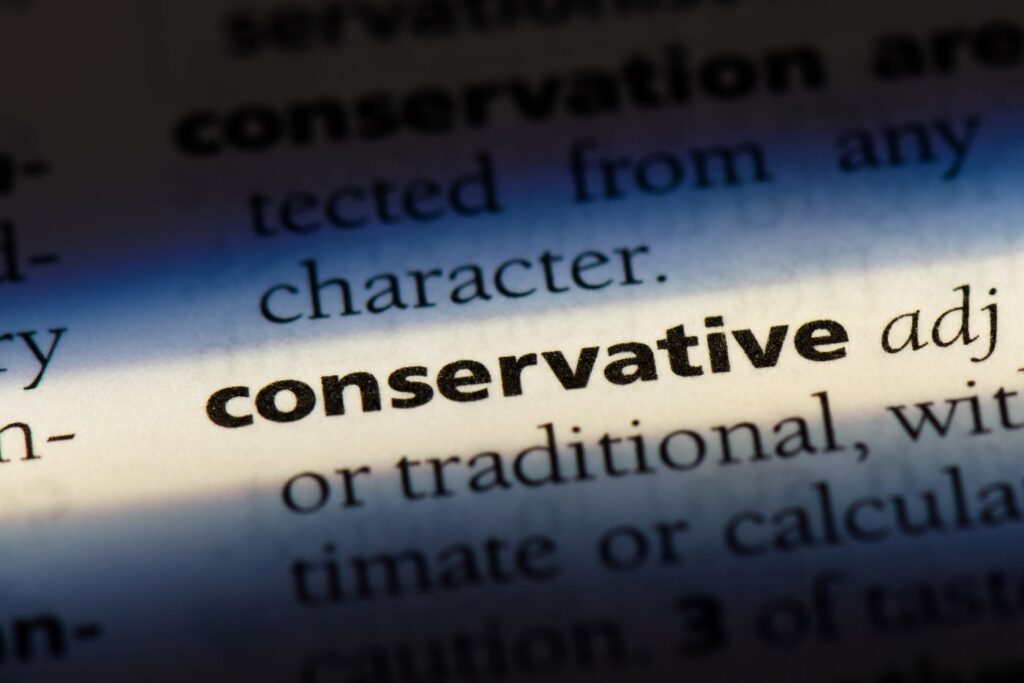What is sometimes called the “New Right” is a medley of various factions—national conservatives of various stripes, Claremonsters, Catholic integralists, and American postliberals. There are many important differences between these groups, but a certain tendency runs across many of them: namely, they increasingly adopt, consciously or unconsciously, a particular understanding of the nature of political activity. Political power, and therefore all political action, is presented as a means by which a preconceived, substantive, and comprehensive social order is brought into being by a concerted, planned effort. Politics is a zero-sum power struggle among advocates of comprehensive visions. The state, at least eventually, assumes the role of a comprehensive authority, ordering all below it according to a preconceived understanding of the “highest good.” As Adrian Vermeule—who is the most forthright about this tendency—puts it, postliberal activists “possess a substantive comprehensive theory of the good,” and seize opportunities to “bring about its fulfillment.”
The thinkers in this New Right spectrum are responding to the undeniable reality that American social and cultural life has dramatically decayed and been coopted for the use of revolutionary politics. But they are increasingly not interested in fighting to reverse the politicization of social life. Rather, they are adopting an understanding of political activity strikingly similar to the very revolutionary politics being opposed. It sounds very much like what Roger Scruton identified as the New Left’s understanding of political power: “the creator and manager of a social order framed according to an idea of ‘social justice’ and imposed on the people by a series of top-down decrees.” And it corresponds to what Oakeshott calls the “ideological style,” whose practitioners believe they can have “an understanding of what is to be pursued independent of how it is to be pursued.”
Some on the New Right fully embrace this similarity to the Left, arguing that the Left has achieved such a total victory that their vision of political life has been vindicated. Conservatives must learn from their approach, merely substituting good, right-wing ends for bad. We must “move past conservatism as a mindset” and past the old constitutional order, argues one Claremont-affiliated scholar. Integralists suggest that conservatives’ cultural failures mean that “they have no alternative but to use the state for the furtherance of their ends.” Arguing “Against Religious Liberty,” a national conservative acknowledged that “The Left understands the end of politics.” And in an admiring profile of Antonio Gramsci, a former staff writer at National Review argued: “One need not abandon long-standing conservative principles . . . to see the merits of the ‘long march’ strategy as an organizing objective.” Or—taking a different tack—we must make ourselves, as one integralist urged, into the “party of the state.”
Is this true? Can the left-wing style of politics be adopted for conservative ends? There are several reasons to be skeptical.
Institutional Integrity
Start your day with Public Discourse
Sign up and get our daily essays sent straight to your inbox.First, the adoption of a leftist vision of political activity requires the tacit acceptance of certain assumptions about social institutions and human nature. To the revolutionary left, for instance, the “war of position” or “march through the institutions”—the systematic stocking of schools, universities, churches, museums, and businesses with committed partisan ideologues—was made possible only because they believed such institutions were ideological by their very nature. These institutions, they believed, did not provide fundamental human goods, but merely served to ratify a given power structure. The same assumption lies behind the desire to bring them under the control of the state, elevating it to the status of a final, comprehensive social authority.
To the conservative, though, churches, schools, universities, art, music, books, and all manners of cultural institutions and practices have their own distinctive, important, non-ideological purposes. It is what Robert Nisbet described as the “functional autonomy” of such particular institutions that is most needed for a healthy culture: “the ability of each major function in the social order to work with the maximum possible freedom to achieve its own distinctive ends.”
Such institutions bring people into contact with ideas, sentiments, experiences, examples, and authorities that together—and sometimes pulling against one another—insensibly form the character of the people living with and under them. But that functional autonomy requires depoliticization and reaffirmation of the worth of these institutions for their own sake. That, in turn, requires a state limited by procedural, constitutional restraints; one that does not seek to direct and dominate society but to provide and enforce rules of the game that emerge from the practices of society itself.
When the institutions of civil society are seen primarily as part of a comprehensive system that occupies the majority of our attention and energy, their distinctive tasks inevitably get lost, as their activities are brought into the incentive structures of mass politics. It is not hard to see the distortions present in some of the New Right’s political programs: schools should focus on providing a “patriotic” education; churches should focus on galvanizing their members for culture war; business and commercial life should be harnessed to pursue national goals; universities, as one activist put it, ought to be more “politicized” and directed by the state to advance a conservative version of “social justice.”
The more cultural hubs like universities are brought into the political realm, the more their output will be tailor-made for the needs of political movements. And in a deeper sense, the simplifications are part and parcel of the kind of politics the New Right wants to practice. If all political effort is to be harnessed to pursue a particular substantive end that we must know in advance, that end must be made into a digestible, abstract package that can be grasped a priori and made the target of political effort. What better way to do so than to redirect our schools, churches, and cultural centers to serve our political vision, rather than their own distinctive tasks?
When the institutions of civil society are seen primarily as part of a comprehensive system that occupies the majority of our attention and energy, their distinctive tasks inevitably get lost, as their activities are brought into the incentive structures of mass politics.
Disaggregated Culture
Second, this vision of politics encourages an unhealthy emphasis on the aggregate manifestations of culture, paying much less attention to the more granular elements: inordinate talk of the “American way of life,” of “national identity,” or even the ubiquitous phrase “culture war”—as if culture were a plot of land to be occupied—reflect this.
As Michael Oakeshott observed, “It is useful to have a word [‘culture’] which stands for the whole of what an associated set of human beings have created for themselves, . . . but we must not be misled by it.” Culture is not something to be considered primarily as a unity—as “the culture.” It is, rather, an unplanned, indeed, almost inscrutable byproduct of countless sources of overlapping authority. And the presence of these plural authorities distinguishes cultural formation from mere indoctrination.
The inordinate focus on aggregate indicators, however, often leads to a dismissal of particular institutions that are functioning well—be they private schools and universities, faithful churches that continue to teach of sin and repentance, local governments, or voluntary associations—all of which are often seen as irrelevant, because in the national conversation, they are drowned out by the debauchery around them. This tendency is implicit in the commonly heard claim that, since the culture overall is unhealthy, there is “nothing left to conserve.”
We do not need more self-conscious crusaders for the nation or even for Western Civilization, but instead more priests, teachers, businessmen, artists, writers, and parents who perform their own activities faithfully, serving—to borrow a phrase from Russell Kirk—as “leaven for the whole lump.”
Has the Left Really Won?
Finally, it is worth considering the nature of the Left’s victory. A remarkable characteristic of America’s present political rhetoric is the extent to which both the Left and the Right seem utterly convinced that the other side is ascendant. Just as loudly as one hears the conservative lament over the Left’s successful march through the institutions, one hears the progressive activist warn that women are being forced into a puritanical dystopia; that there is an ongoing genocide against trans people; that “systemic racism” permeates all aspects of society; that “our democracy” is lapsing into fascism; and that capitalist greed threatens to destroy the planet and wipe out all life.
And their present disappointment is reinforced when we consider the aims of New Left thinkers and activists. The “war of position” was not, after all, an end in itself, but a strategy to create a particular aggregate social order, though the specifics varied. What would the ’60s radical in the “free speech movement” think of today’s bureaucratized university with its speech codes and cancellations? What would Gramsci think of multinational corporations virtue-signaling their wokeness, while executives hop on their jets to Davos? What would the civil rights protesters think of the fact that—after sixty years of the civil rights Constitution—racial divisiveness is getting worse, not disappearing? What would the sexual revolutionaries think of the fact that those who marry and live by “bourgeois values” continue to be more successful than those who have been “liberated” from them?
That is not to say that the Left hasn’t run roughshod over American life. But in doing so, it has merely done what conservatives have always known was easy: destroy. It has been unable, despite its victories, to create the society it sought for itself. For the leftists, too, despite all their efforts, despite their substantive visions of the good, despite all their political victories, and despite having the upper hand in many of our conflicts, are also swept along by the flow of political life that is never fully in anyone’s control.
We do not need more self-conscious crusaders for the nation or even for Western Civilization, but instead more priests, teachers, businessmen, artists, writers, and parents who perform their own activities faithfully, serving—to borrow a phrase from Russell Kirk—as “leaven for the whole lump.”
The Courage of Conservatism
A more localized and limited path to cultural renewal looks to the New Right like capitulation because it offers no guarantee of immediate—or even eventual—success. But while the approach does aim at civil peace and accommodation, rather than domination, it can hardly be put down as political quietism. In today’s environment, a revival of genuine constitutionalism, of genuine limits on the national government, of a genuine rule of law applicable to all, of government power exercised by negotiated consensus, not exclusively by a detached elite class, is every bit as ambitious and imaginative as visionaries of the New Right. It would require political courage and tenacity beyond anything “movement” conservatism has had the stomach for. The question isn’t whether to engage politically, but what we understand the proper activity of politics to be.
The New Right has increasingly adopted the mentality that Thomas Paine expressed when he declared that “we have it in our power to begin the world over again.” We can, with a clear vision of the good before us, dispose of the rotten world that the past has handed us, and build up a truly just politics.
To say this, however, is simply to say that conservatism as a body of knowledge about social and political life is wrong. Though it offers no guarantee of success, the conservative must still make do with what Scruton called “the opposite of all the ‘isms’: negotiated politics, without an ‘ism’ and without a goal other than the peaceful coexistence of rivals.” Only a recovery of that politics can serve as the necessary hedge around the uprooted garden of culture, which must now be revived, replanted, and tended for its own sake.
This essay is based on a presentation given by the author at the Academy of Philosophy and Letters in June 2023.
The featured image is courtesy of Casimiro and is in the public domain thanks to Adobe Stock.













